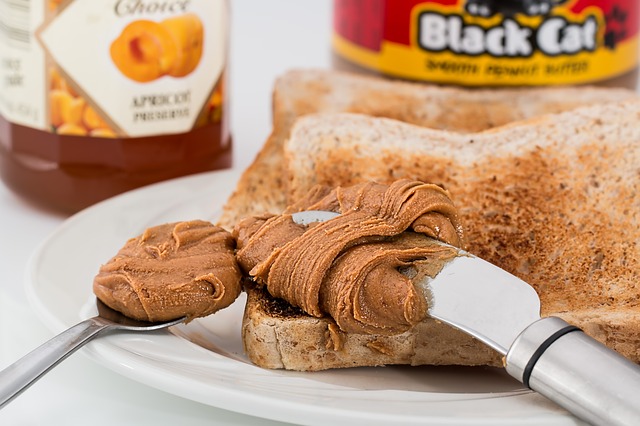Even as close as a few decades back, doctors across the world warned expecting women against eating peanuts, or anything made with peanuts in them, for fear of passing on to a peanut allergy to the baby. The warning was especially strict for women who were allergic themselves, or has a history of peanut allergy in the immediate family. But things started to change toward the end of the last decade. New research showed two surprising new finds: one, that eating or laying off peanuts did not have any impact on whether the baby developed nut allergies or not, and two, that eating peanuts and related products actually has some pretty big benefits.
So, if you are wondering whether you need to lay off that delicious peanut butter during those nine months, the answer is an emphatic no. However, like everything else, you need to practice moderation, and it is essential that you know first whether it is okay for you to eat peanut butter any time in the first place.
Good for the baby
Some studies suggest that babies of women who eat peanut butter during their pregnancy can actually develop better resistance to peanut sensitivity than babies of women who don’t. Besides, peanuts are rich in folic acid, which is very good for the neural and spinal development of the baby. Studies have shown that babies of women who consume a healthy amount of peanuts and peanut butter during pregnancy are much less susceptible to develop neural or spinal disorders, such as spina bifida. The high protein content in peanuts is also very good for the health of both the mother and the baby, as it helps in overall development and health.
Healthy for the mother
Peanuts are a rich source of protein and vitamins A and C, and multiple B vitamins as well. Besides, they contains a good amount of dietary fiber, which helps in fighting pregnancy related digestive issues like constipation and diarrhea. Apart from this, a cup of peanuts contain about half the recommended daily intake of several types of minerals, such as zinc, calcium, magnesium, potassium, and phosphorus. All these minerals help keep the mother healthy by keeping the bones strong and boosting the formation of hemoglobin. Apart from this, the antioxidants in peanut butter also help in fighting infections.
Helps fight depression
Many women fall prey to depression during pregnancy. While not much research has taken place about this, it is still a very real issue affecting women during and immediately after pregnancy. Some studies have shown that peanuts can help in fighting depression by boosting the production of serotonin in the body, which is further aided by tryptophan, which is an amino acid contained in peanuts.
Test for allergies
This is as much essential for the baby as it is for the mother. If you already have a history of peanut allergy, or other kinds of food allergies, get an allergy test done as soon as you find out that you are pregnant. If you test positive to peanut sensitivity, stay away from the peanut butter all through the nine months. The body undergoes massive changes during pregnancy, and even the mildest allergies can take vicious form, and that can be severely detrimental for both your and the baby’s health.
Check for weight issues
Some women face difficulty in managing their weigh during pregnancy. It is not uncommon for women to gain too much weight during those nine months. While some weight gain is recommended and necessary for proper development of the baby, it is not a sign of good health if the woman gains too much weight. So, if you already have weight issues, it is best to lay off peanuts and peanut butter during those nine months. Peanut butter contains high levels of protein and monounsaturated fatty acids that can lead to drastic weight gain if not taken in moderation.
Also read: Can I Eat Chocolate During Pregnancy?
How to eat
It is best to choose the kind of peanut butter that is mostly made of peanuts, with very little added preservative and other ingredients. If possible, make some at home to enjoy a healthy PB&J every now and then. It would be best to keep in mind that at times store-bought peanut butter contains salt and/or sugar added to them. Take a careful look at the list of ingredients and make sure that either there is none added, or that the quantity is very low. If you have problems maintaining weight, avoid peanut butter with sugar and opt for the salted version instead. But first thing you must do is speak to your doctor regarding your diet.

